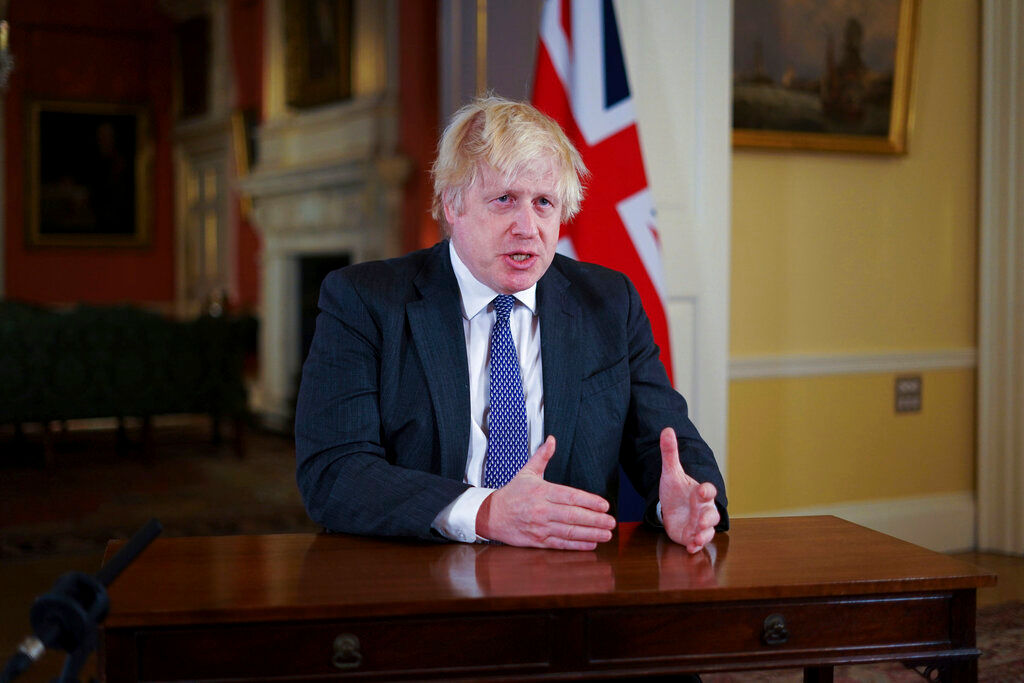The British government on Wednesday set out plans for a huge shift in power and wealth to left-behind regions of the country, a long-standing promise to the voters who helped put Prime Minister Boris Johnson in office.
Johnson’s Conservative government was elected in 2019 on a pledge to “level up” one of Europe’s most regionally unequal countries by improving transport links, infrastructure and economic opportunities in swaths of the country hit by shuttered industries and public funding cuts.
Also read: UK PM Boris Johnson partied during COVID lockdown. Why is it a big deal?
The government fleshed out that promise Wednesday with details of plans to invest in public transport, education, digital connectivity and R&D in poorer regions, mostly in central and northern England, by 2030. It also said more regions will get elected mayors with substantial powers, and derelict industrial sites will be targeted for major regeneration projects.
As yet, though, there are few details of how the ambitious plans will be funded.
Also read: Boris Johnson apologizes after Gray report comes out
Britain has long deep regional divides, with money and wealth concentrated in London and the south of England, while heavy industry dominated the north. The closure of mines and factories as the U.K. moved from industrial powerhouse to service-based economy in recent decades hit those areas hard. The divide grew wider when Conservative-led governments slashed public spending to curb a ballooning deficit after the 2008 global financial crisis. Poorer areas that were most dependent on state funds suffered the biggest hit.
Former industrial cities in England such as Liverpool, Manchester and Leeds, along with Glasgow, Scotland, have done much to reinvent themselves as economic, cultural and creative hotbeds, but smaller towns and cities are still scarred by poverty, poor education and high unemployment.
Also read: Sue Gray “partygate” report on UK Prime Minister Boris Johnson: key points
Michael Gove, the minister in charge of the leveling up plan, said Britain’s 2016 vote to leave the European Union had been “a wake-up call” by voters in neglected areas.
“As well as a clear commandment to leave the European Union it was also a way of saying to people in (Parliament’s postcode) SW1, people like me, ‘look, it’s vital that you change the economic model of this country,'” he said.
Also read: Boris Johnson receives Gray ‘partygate’ report, but questions remain
Tracy Brabin, mayor of the West Yorkshire region of northern England, welcomed the government’s plans but said “the devil is going to be in the detail.”
“Lots of ambition, lots of hope, but unless you actually have the money and the resources, you are going to be struggling,” she told the BBC.
Johnson hopes announcing the long-awaited plans will provide some respite from scandal over lockdown-breaching parties held in his office during the pandemic. Police are investigating a dozen gatherings that may have breached coronavirus restrictions, and a senior civil servant’s report this week slammed “failures of leadership and judgment” in the prime minister’s office.
Johnson has apologized and promised to overhaul his office and regain public trust. But his opponents — including some in his own Conservative Party — are calling for him to resign for allowing staff to party while millions endured isolation to help curb the spread of COVID-19.
Also read: PM Boris Johnson to visit Ukraine, talk to Putin as Russia threatens invasion
The party has a history of ousting leaders once they become liabilities, and Johnson could yet face a no-confidence vote from his own side. Under party rules, such a vote is triggered if 15% of party lawmakers — currently 54 people — write letters calling for one.
About a dozen Tory lawmakers have called publicly for Johnson to go, though more have likely submitted letters. Tobias Ellwood, a high-profile Conservative legislator, said Wednesday he would be sending a no-confidence letter to the party committee in charge of leadership challenges.
Also read: Manchester United player Mason Greenwood released on bail
“This is just horrible for all MPs to continuously have to defend this to the British public,” he told Sky News.
“It’s time to resolve this completely so the party can get back to governing. … I will be submitting my letter today to the 1922 Committee.”
(With inputs from The Associated Press)







